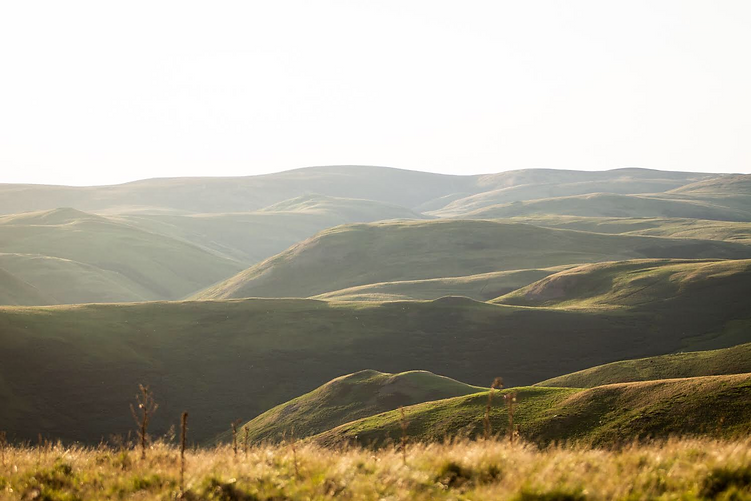Events have an impact on the environment, social cohesion and economies. We have a responsibility to find equilibrium between our negative and positive impacts.
Our strategy director Tommy Wilkinson, an experienced conservationist, takes you through how we plan to do this.

LAND USE
The Upper Coquet Valley is a diverse and ecologically rich area. We must protect this, and encourage riders to do the same.
For that reason, The Naughty is held within the Kidland plantation: A 6100a site of Sitka Spruce, Scots Pine and Larch that is commercially and operationally active. The soils in Kidland are a mixture of rankers, gleys and peat.
We try to keep away from peaty areas and work closely with Forestry England to ensure the trails are built in a way that has minimal impact and don't affect the SSSI Coquet tributaries that drain out of Kidland. We want clean rivers, healthy migratory fish and carbon sequestering soils, grasslands and forests.
The Hay Meadow we use as a camping field is in an Arable Reversion scheme to help River Catchment health and attract pollinators. We ensure we drop no fuel or grey waste onto this field, and leave as much of the meadow uncut as we possibly can.
WILDLIFE
We can't give you too much detail but we don't work on any trails or areas that may be subject to Wildlife and Countryside Act 1981between March and August. Disturbance is a critical threat to biodiversity and we strongly advocate for this law. For me personally, this is the main reason the Kidland Trails should remain closely managed and open only when agreed with Forestry England. I don't want to destroy the very things that makes this area special.
ENERGY
We have used a 100kva generator for the event village each year of the Naughty. In 2022 we are going to use a Solar Pod to replace this, saving us approx 620 litres of diesel
We already use Solar Tower lights, saving us another 200 litres of diesel.
Our PA and AV suppliers use electric vans, low energy and solar lighting and are based 35 miles away.
We are exploring discounts to those who car pool, share or come by public transport, or under their own power. If we expand the scope of impact to secondary layers, vehicle travel has by far the biggest impact. We're also pragmatic and accept there's not much we can do about this.

WASTE
Remondis are our waste partner. In 2021 they recycled 97% of our 1500kg of waste. All compostable food and drink containers were composted at an industrial facility and returned into a plant based fertiliser.
SUPPLIERS & MATERIALS
We use recycled materials for number boards.
We use water based inks.
We re-use signage each year.
We use biodegradable, reusable string instead of cable ties across the entire site, including for number boards. This saves us using approx 5,000 cable ties.
Food suppliers who sell meat must prove that animals are grass fed with no Soy inputs, preferably from PFLA approved farms. We don't demand organic across the range, but will always favour Soil Association approved ingredients in the supply chain of our vendors.
Trophies are made out of local Larch, and engraved in Alnwick.
We ask that vendors use no single use plastic.
Beer is sourced from Hadrian and Border, about 35 miles away, who use grain grown in the UK.
We are still searching for a compostable portable toilet supplier. For now, our portaloos are chemical units that run a closed system.
HABITAT RESTORATION
DWAGENCY, an event shareholder and of which I am the managing director, donate 15% of our profits from the Naughty (We took £8000 from the event in 2021 - as you can guess, the event is a loss maker for a business that employs three full time staff on PAYE salaries who spend a full month working on it) to habitat restoration schemes. We are currently in negotiations with a local landowner to lease a 38ha area of land and put it into a small ecological restoration program. If we can show how we can make this viable I believe other opportunities will open up to us to work with land managers, farmers and agencies.
